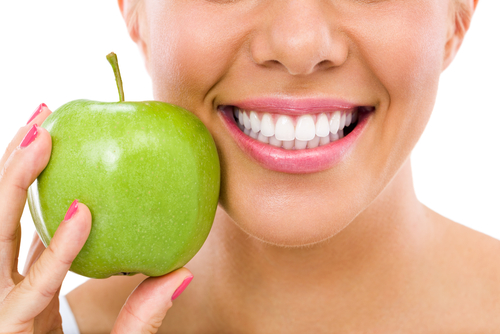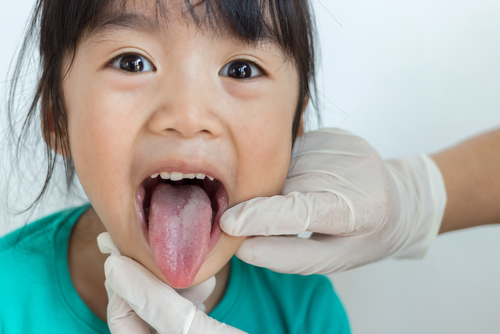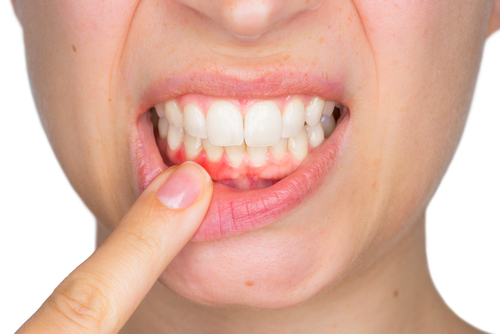Are you struggling to keep your toddlers and tweens on top of their oral health? As trusted dental practitioners, we understand that encouraging your kids to keep their teeth shiny, strong and clean can sometimes feel impossible.
From thumb-sucking and teeth grinding to general brushing and flossing routines, it can be tricky to make dental care fun.
In the spirit of promoting ‘National Children’s Health Month’ our Underwood and Maudsland Dental Care teams have collated their top 5 tips to help keep your little one’s teeth healthy.
Jump to:
- Brushing routine & techniques
- Less sugar, better health
- Smoke-free household
- Make dental care fun
- Regular check-ups
What is National Children’s Health Month?
Kids can be more vulnerable to germs and nasty air pollutants than grown-ups. Why? Because their behaviour and biology work differently. National Children’s Health Month (October) helps raise awareness and emphasise preventive measures and healthy habits to implement for our youngest community members nationwide.
Maudsland and Underwood Dental Care are passionate about helping our community stay healthy and happy by providing exceptional dental services. Our trusted paediatric dentists ensure your little ones gain the confidence, motivation, and knowledge to maintain their smiles for the rest of their lives.
Take the first step for your child’s health and happiness by booking a check-up today.
1. Brushing routine & techniques
It’s never too early to start the toothbrushing party! For babies, grab a small wet washcloth or gauze to give those gums a gentle clean. Once the first tooth peeks out, you can introduce a soft-bristled toothbrush to remove plaque and bacteria buildup.
By the time your little one hits the terrible threes, they’ll likely have a full set of 20 baby teeth. Now, these might only be temporary, but they still require dedicated love and care to prevent tooth decay and gum disease. Make sure you clean them twice daily or after each meal.
Between ages three and five, you can let your mini-me take charge – with supervision. Teach them the practical art of gentle circles to avoid overbrushing and scrubbing (this can potentially cause more harm than good to the gums and tooth enamel).
We recommend using a toothbrush with soft bristles and a small head, and electric brushes for 3+ years. Use low-fluoride ‘children’s toothpaste’ for children under six years old.
2. Less sugar, better health!
Most parents know the importance of a balanced diet for healthy bones, skin, heart and mind. Teeth are no different.
It’s no secret that sugar poses a major risk to your kid’s dental health, being one of the leading causes of plaque and cavities. Limit sugary treats and drinks, especially soda, fruit juice, and sports drinks.
Here’s some food and drink tips from our top dental professionals:
- Calcium-rich foods like milk, cheese, and yoghurt (sugar-free) can be great for building strong teeth and fortifying the bones around the mouth. They can also help strengthen tooth enamel and maintain overall oral health.
- Crunchy food options such as apples and carrots act like natural toothbrushes, helping to rid plaque as your child chews.
- Protein and vitamin C are crucial contributors to dental health. Try to include a healthy balance of nuts, seeds (particularly sunflower seeds), fruits, and vegetables in your child’s diet.
- When in doubt, opt for water! It’s the safest option for your youngins.
3. Smoke-free household
Did you know that breathing in secondhand smoke can harm your child’s mouth, affecting the gums, saliva, and vitamin C levels? All of which can make them more prone to cavities. Keep your little ones away from smoke to keep their smiles healthy!
If you or someone in your household smokes, seek support by calling (800) QUIT-NOW or visiting smokefree.gov for valuable tips and advice on quitting.
4. Make dental care fun!
We know that oral health is not exactly the most exciting topic, but there are ways to make it fun and exciting for your tiny tots. Here’s some of our best tricks and tips:
- Two minutes of toothbrushing might feel like a lifetime for children, but it’s a habit you’ve got to secure early on. Kids tend to respond well to positive reinforcement, so you could set a timer and organise a reward system when they complete their brushing duties.
Or, better yet, let their favourite song play – time flies when you’re brushing and grooving! - Let them be the boss of their tooth tools! Take them with you to pick out their toothbrush and toothpaste.
5. Regular check-ups
You may think it’s too early to take your little one for a dental check-up, but seeing a paediatric dentist can help keep your kid’s gums and teeth strong. We usually recommend that their first visit should happen close to their first birthday.
Our kind and gentle paediatric dentists spot potential problems early. Whether that’s tooth decay, gum inflammation or ongoing thumbsucking habits, we can give you actionable solutions, positive support and kid-friendly educational packs.
Plus, if you make it a regular visit (every six months), your child will become calmer and more comfortable with all things dental.
If that’s not enough incentive for you, studies have revealed that parents actually save money by scheduling their child’s first dental visit early. Waiting until your child is two or three can lead to more emergency and therapeutic treatments. No one wants that!
The Child Dental Benefits Schedule (CDBS)
The Child Dental Benefits Schedule (CDBS) is a government program designed to offer fundamental dental services to qualifying children aged 2 to 17. If your child is eligible for CDBS, just bring along your Medicare card during the visit.
We’ll handle the claim process, and you won’t have any out-of-pocket expenses for your child’s treatment. For more information, visit humanservices.gov.au or give one of our helpful clinics a call.
Maudsland Dental Clinic
Servicing Maudsland, Oxenford, Pacific Pines, Pimpama, Coomera, Helensvale and surrounding suburbs, Maudsland Dental Care strives to provide enjoyable, pain-free dental services for you and your loved ones. We hope to shed the age-old stereotype of the dreaded drill-wielding dentist that would make any child or adult anxious.
Instead, we play your child’s favourite cartoon during their treatment or display live videos of their mouth to count teeth together. We also grant them a sneaky treat post-procedure from our rewards box. Together, we hope to build trust with our younger patients and be their real-life tooth fairies and health heroes.
Underwood Dental Clinic
Underwood Dental Care has a special interest in family and paediatric dentistry, providing preventative, gentle dental services in a comfortable, modern clinic.
We treat trauma, cavities, unerupted teeth and more for kids of all ages. Our main goal is to give your children the confidence to become masters of their own oral health by making their visit equally fun and educational.
From Brisbane to Logan to Springwood, trust Dr Ben, Dr Amos and the rest of our paediatric dentists to encourage and empower your little ones to love their smiles!





